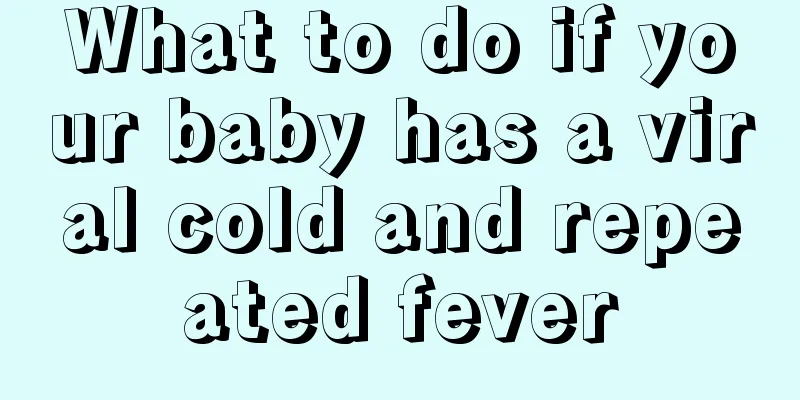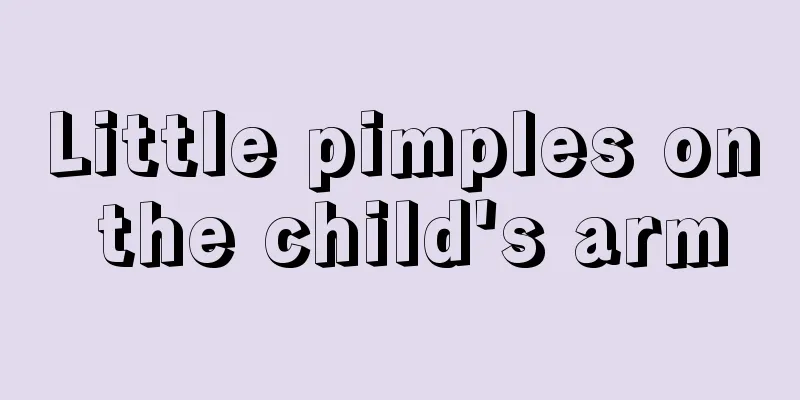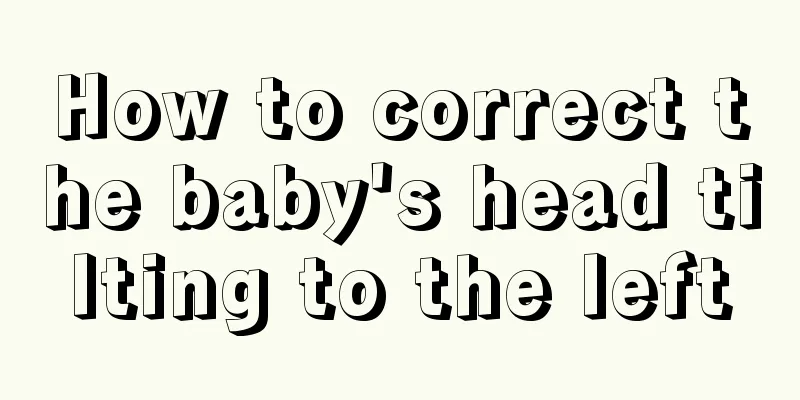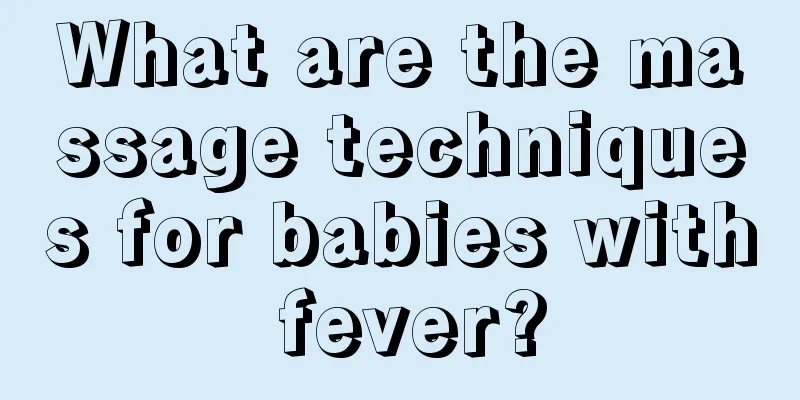What to do if your baby has a viral cold and repeated fever

|
Many babies will catch a cold as they grow up, usually with symptoms such as coughing or runny nose, but many babies will also have a fever when the condition is serious. This is also what many parents are most worried about. After the baby has a viral cold and repeated fever, we must pay attention. So what should we do if the baby has a viral cold and repeated fever? Let’s take a look at it below. As soon as a child has a fever, it is a taboo in medical treatment to use antipyretics immediately regardless of the reason. Fever is not all bad. First of all, fever is a signal that the child is sick. Secondly, fever is beneficial to mobilizing the child's immune function, which is beneficial to killing and eliminating bacteria and viruses, and promoting recovery from the disease. This is because after a fever occurs, the heart rate increases, and the heart rate increases by about 10-20 times for every degree Celsius increase in body temperature. The heart rate increases, blood circulation is vigorous, and the amount of blood flowing to the inflamed area increases. On the one hand, it can dilute the bacteria and the toxins they produce. On the other hand, the number of white blood cells also increases, which can not only directly destroy and engulf bacteria and viruses In addition, it can also produce an endogenous heat to produce antibodies that have the ability to kill bacteria or viruses, thereby promoting the improvement of the disease. At the same time, the iron in the blood is temporarily stored in the liver. Bacteria need iron more than humans. Once iron is deficient, bacteria will find it difficult to grow, thus achieving the purpose of eliminating bacteria. If you use too many antipyretics as soon as you have a fever, not only will the above series of changes be difficult to achieve, but it may also mask the condition and delay treatment. In addition, the symptoms become atypical after the fever subsides, which also makes diagnosis difficult. Therefore, when you have a fever, do not rush to reduce it before the diagnosis is confirmed. Only choose the corresponding antipyretic analgesic when one of the following situations occurs: the fever is too high (above 39 degrees), especially in children with high fever convulsions. Although the fever is not too high, there are obvious headaches, insomnia, impaired consciousness, which affect the child's rest; due to persistent fever, the heart and lung function has been endangered, or the high fever cannot be tolerated, etc., antipyretic analgesics may be used as appropriate. After a fever is confirmed, do not simply reduce the fever, and do not use too many medications to reduce the fever. Generally speaking, if the body temperature is below 38 degrees, there is no need to take antipyretics. Just drink plenty of water (small amounts and multiple times) and rest in bed. If the fever is above 38.5 degrees, you can use a wool patch soaked in cold water to place on the forehead, armpits, thighs and other parts of the child to cool down. Ice packs will be more effective. In case of high fever, give the child an appropriate dose of antipyretic medicine under the guidance of a doctor. Don't be in a hurry and use medicine indiscriminately. Through the above introduction, we know what to do if the baby has a viral cold and repeated fever. When the baby has such a situation, the first thing to do is to carry out symptomatic treatment. During the treatment process, the baby should drink more water. If the fever is more serious, physical cooling should be carried out. Generally, try to use as few antipyretics as possible, which is not good for the baby's body and condition. |
<<: How many days does a baby's viral fever last?
>>: Why does my baby have a fever?
Recommend
Are sleeping bags good for newborns?
Children are naturally active, so they will not s...
What should I do if my baby has tonsillitis and snores while sleeping?
As parents, we must observe our children's ev...
Several major hazards of babies sleeping with the light on
The physical health of the baby is what parents c...
What should I do if my child has conjunctivitis?
Conjunctivitis is a common eye disease in real li...
What to do if a 7-year-old boy has toothache
Toothache is a common phenomenon in life. It can ...
Symptoms and treatment methods of spleen deficiency in children
When children show symptoms of poverty, parents s...
How much water should a seven-month-old baby drink every day?
Every baby has needs at different ages. Many chil...
Analysis of Psychological Problems of Left-behind Children
Left-behind children are a special group of peopl...
Is it okay for a baby to drink milk while sleeping?
The baby's life has no regular pattern. He cr...
Children eat dragon fruit and their urine turns red
The nutritional value of pitaya is very high. It ...
What to do if your child has a runny nose
It is very common for children to have a runny no...
What should I do if my baby coughs and has hot palms and soles?
The baby's body is relatively fragile, and it...
What's wrong with a five-year-old baby's astigmatism?
With the improvement of modern human living stand...
How to deal with a 2-year-old baby having a fever at night
It is common for a two-year-old baby to have a fe...
What should children eat if they have excessive dampness in their bodies?
To address the problem of excessive moisture in t...









